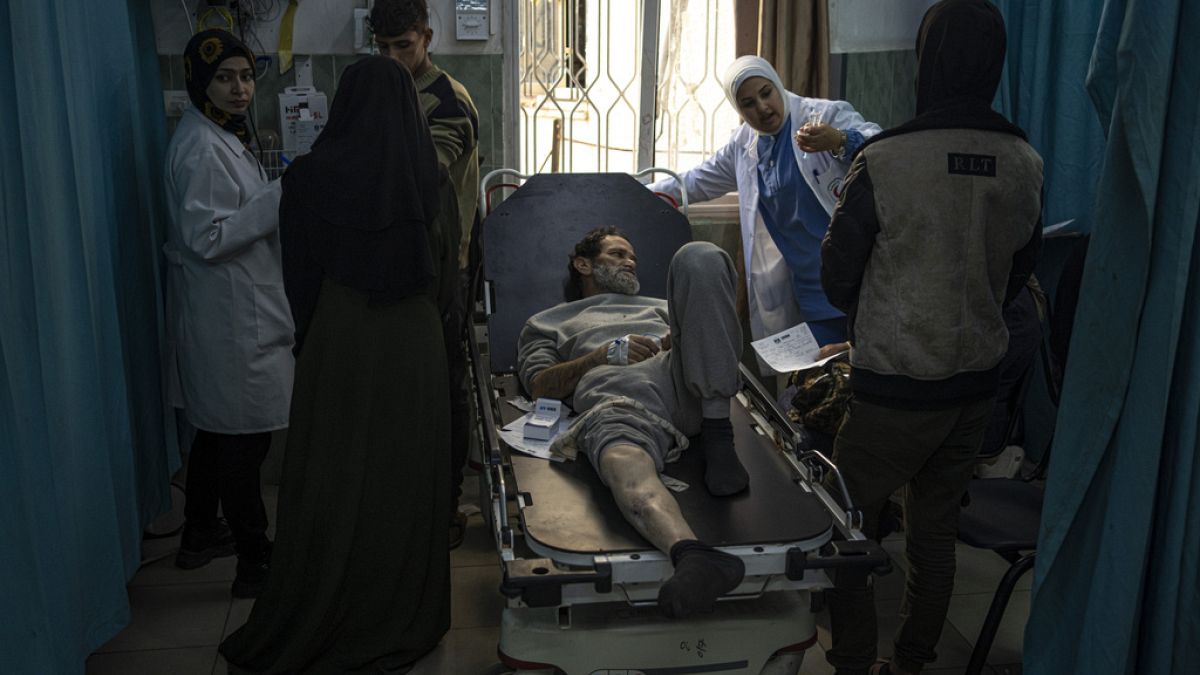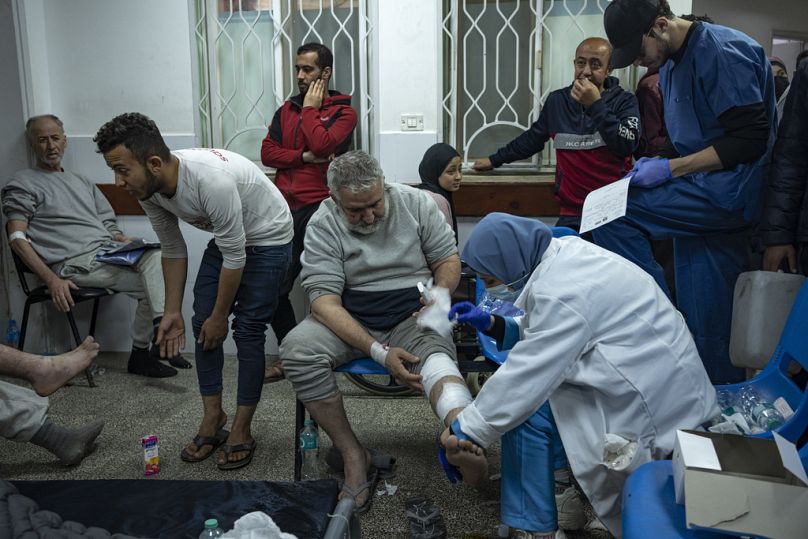The World Health Organization (WHO) says amputations have become commonplace during the war between Israel and Hamas. More than 54,500 war wounded in Gaza have to face heart-wrenching choices.
Doctors gave Shaimaa Nabahin an impossible choice: lose her left leg or face death.
The 22-year-old had been in hospital in Gaza for about a week after her ankle was partially severed when doctors told her she was suffering from blood poisoning. Nabahin decided to maximise her chances of survival and agreed to have her leg amputated 15 centimetres below the knee.
The decision turned the ambitious university student's life upside down, as it has for countless others among the more than 54,500 war wounded who have faced similar heart-wrenching choices.
"My whole life has changed," said Nabahin, speaking from her bed in Al-Aqsa Martyrs' Hospital. "If I want to take a step or go somewhere, I need help."
The World Health Organization (WHO) and the health ministry in Hamas-run Gaza say amputations have become commonplace during the Israel-Hamas war, now in its 12th week, but could not give precise figures. At Deir al-Balah Hospital, dozens of recent amputees are in various stages of treatment and recovery.
Experts believe that in some cases, limbs could have been saved with proper treatment.
Hospitals are severely overcrowded, offer limited treatment and lack basic equipment to perform surgery. Many of the wounded are unable to reach the remaining hospitals, which are pinned down by Israeli bombardment and ground fighting.
Doctors faced with life-changing decisions
On 13 November, when an Israeli air strike hit the home of Nabahin's neighbour in Gaza, her ankle and the arteries in her leg were partially severed by a chunk of cement blown into her house from the explosion next door. She was the only member of her family to be injured, while a number of her neighbours were killed, she said.
She was quickly rushed to the nearby Al-Aqsa Martyrs Hospital, where doctors managed to stitch up her leg and stop the bleeding.
But after that, Nabahin said she received minimal treatment or attention from doctors who were dealing with a growing number of critically wounded people amid dwindling medical supplies. Days later, her leg turned a dark colour, she said.
"They discovered there was shrapnel that was poisoning my blood," she said.
The amputation went well, but Nabahin says she is still in acute pain and can't sleep without sedatives.
Jourdel Francois, an orthopaedic surgeon with Doctors Without Borders (MSF), says the risk of post-operative infection is high in war-torn Gaza.
Francois, who worked at Nasser Hospital in the southern city of Khan Younis in November, said hygiene was poor, mainly because of water shortages and the general chaos of a hospital that's overwhelmed with patients while sheltering thousands of displaced civilians.
He recalled a young girl whose legs had been crushed and who urgently needed a double amputation, but she couldn't be scheduled for surgery that day because of the high number of other critical injuries. She died later that night, Francois said, probably of sepsis, or blood poisoning caused by bacteria.
"There are 50 (injured) people coming in every day, you have to make a choice," he told AP by phone after leaving Gaza.
A hard life for survivors
Before the war, Gaza's health system was overwhelmed by years of conflict and a border blockade imposed by Israel and Egypt in response to Hamas's takeover of the territory in 2007.
In 2018 and 2019, thousands were injured by Israeli army fire during weekly Hamas-led anti-blockade protests, and more than 120 of the wounded had limbs amputated.
Even then, Gaza's amputees struggled to obtain prosthetics to help them return to active life.
Those joining the ranks of amputees now face almost impossible conditions. Some 85% of the population of 2.3 million have been displaced, crowded into tents, schools that have been converted into shelters, or the homes of relatives. Water, food and other basic necessities are in short supply.
At Al-Aqsa Martyrs Hospital, many of the new amputees are struggling to come to terms with how the loss of limbs has changed their lives.
Nawal Jaber, 54, had both legs amputated after she was injured on 22 November when an Israeli bombardment hit her neighbour's empty house and damaged her home in Bureij. Her grandson was killed and her husband and son were wounded, she said.
"I wish I could meet my children's needs, (but) I cannot," said the mother of eight, tears streaming down her face.
Before the conflict, Nabahin had begun studying international relations in Gaza and was planning to travel to Germany to continue her studies.
She said her goal now was to get out of Gaza, "save what is left of me and live my life normally".

